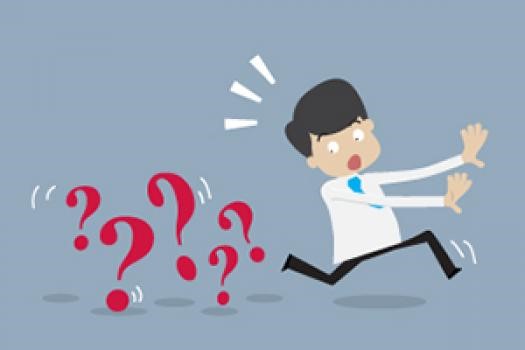Don’t Be Afraid to Put Your Interviewer in the Hot Seat

After spending up to an hour sweating through interview questions and hoping that the person conducting the interview doesn’t notice how nervous you are, they finally ask if you have any questions for them. Unfortunately, this portion of the interview is often underutilized by candidates who fail to ask questions that demonstrate their interest in the company and that help them determine if the position is the right career move for them. Don’t be one of those candidates; instead, turn the tables and put the interviewer in the hot seat. After all, the interview shouldn’t focus solely on whether you are the right person to fill the position; it should also be about whether the position is right for you.
Use the following list as a starting point when brainstorming your own questions to ask during your next job interview.
Culture
Going into the interview, you should research the company you are interviewing for and know general information about it such as how long the company has been in business and what they produce or services they offer; however, it may be hard to find information about the culture of the company. In order to determine if you would enjoy working for their company and fit in as a member of their staff, ask the interviewer questions that will help you to understand the culture of the company.
- Can you describe the culture of your company?
- Would you say that employees at this company work more collaboratively or independently?
- I read your company’s mission statement before coming today, would you say that this company demonstrates their mission statement on a daily basis? How is it reflected in the work that is done here?
- How important is giving back to the community to your company, and do you have any community outreach programs?
Company
When you are researching the company prior to your interview, you may think of questions that only an insider could answer. Once the interviewer is in the hot seat, you have the opportunity to get the answers to those questions.
- What is the best part of working for this company?
- What would you change about this company if you could?
- What skills and attributes do successful employees at your company possess?
- Where do you see your company going in the future?
Team Members
It is important when deciding if you want a position that you know about the people that you will be directly working with. Ask the interviewer questions that will help you decide if you would be a good fit, and if you would enjoy working with the other members of the team.
- Can you give me some details about the team I would be working with?
- Who would I be reporting to and would I have any direct reports?
- What are the strengths and weaknesses that you see on this team, and what skills does the person who fills the open position need to possess?
- How well does this team work together?
Job Specifics
In addition to knowing about the company, its culture, and the people who work there, it is important ask questions that are specific to the job that you are applying for. Use the answers to these questions to determine if you have (or can learn) the skills needed to fill the position.
- Why is this position open? Is this a new role or would I be filling a previously occupied position?
- What challenges will the person filling this position most likely encounter?
- What does a typical day look like for the person hired for this position?
- What projects will the person hired be immediately responsible for?
- Once you have made your hiring decision, what will you be looking for in 30 days, 60 days, and 90 days?
- How is performance measured for this position, and how often is this position reviewed?
Final Questions
Since this portion of the interview is normally conducted at the end, once you have had your other questions answered, it is time for you to wrap up the interview. The following questions should be used to find out how the selection process is going to proceed after you leave.
- What does your hiring timeline look like?
- When should I expect to hear from you regarding the position?
- Who should I reach out to if I have any further questions?
- Do you have any final questions for me?
While you don’t have to ask all of these questions (and probably shouldn’t in order to respect the interviewer’s time constraints), you should come to the interview prepared to ask at least one question from each of the areas listed above. Have confidence while asking these questions and don’t be afraid to put your interviewer in the hot seat by asking difficult questions. The questions that you ask will show the interviewer that you are serious about the position and will help you to determine if this is a position that you want.

